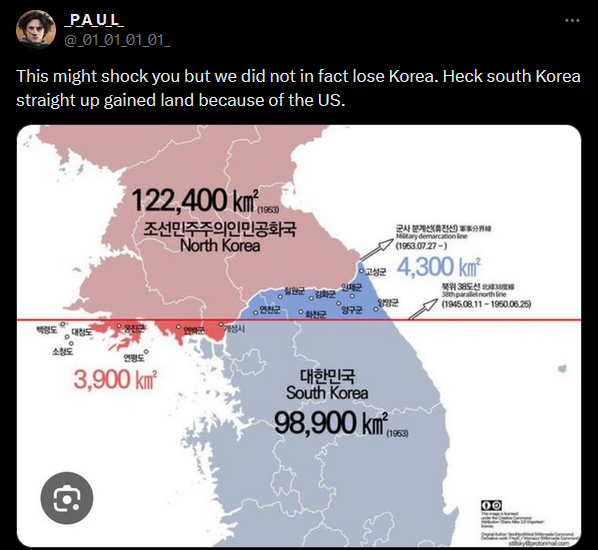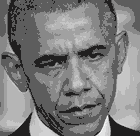|
Funny AU and UK still have "labour" parties in their politics huh?
|
|
|
|

|
| # ? May 23, 2024 20:10 |
|
mahershalalhashbaz posted:australians loving suck is why That's what happens if you give millions of English sunstroke for generations, the evolve into Australians.
|
|
|
|
stephenthinkpad posted:Funny AU and UK still have "labour" parties in their politics huh? AU doesn't even have a Labour party at all it's called Labor for some stupid reason
|
|
|
|
But... what the gently caress happened in Australia where the middle class was enlisted in this project of rolling back 100 years of industrialization and social change? I'm genuinely clueless about Australian politics, I just know they fought tooth and nail to have a political economy that was not the personal plaything of mine owners and ranchers, and then inexplicably, they seem to have handed it back to them?
|
|
|
|
DJJIB-DJDCT posted:But... what the gently caress happened in Australia where the middle class was enlisted in this project of rolling back 100 years of industrialization and social change? the same poo poo that happened in every other western manufacturing economy, especially when there are truly astonishing amounts of valuable things in the ground. I don’t think there’s anything special about Aus politics in that regard.
|
|
|
|
A poor reading of it, but: Australia had an active and reasonably successful labour movement up to the late 80s. At that point Keating came in to lead that movement and started cutting the legs out from it, but was tolerated as he could lay a sick burn on the opposition. After Keating we had Howard who had 4 terms (nearly 12 years) to absolutely gut the state. We privatised power, telecommunications, water, and anything we could lay our hands on. Cut down tariffs and opened up as many export friendly agreements as we could. Got as hard into the bed with the US as possible. He ran an amazingly successful anti-refugee platform and was right in on the war on terror and used the two to absolutely gut the working class's conciousness. Murdoch helped of course as he consolidated all non-state media and just ran front page labour smear pieces for decades. Since Howard we've manage to install true business believers at the head of the remaining state functions like the ABC. We had a bit of a resurgence with Rudd, who actually started opening relationships with China and trying to heal the first nations gaps. He got very plainly knifed shortly after suggesting we tax mineral exports, which were heavily subsidised for the gain of the national rich and the US/EU. Labour at the time tried tepidly to hold on to auto manufacturing, but after 8 years of every media outlet screaming about how they can't lead the liberals came in and immediately shut it down. We now have little national vision, an entirely captured labour movement, and few actual strengths beyond grow/dig up and export raw materials. We don't even do large amounts of secondary processing. The nation's still riding on the tail of the labour movement with high wages and a generally good standard of living, but that's being rapidly eroded. There's some occasional signs of hope - the Vic premier was absolutely trashed in the media for daring to follow medical advice through covid and investing in major infrastructure projects, but still won a 3rd term very conclusively. He's gone though now and the state labour party are rapidly rolling it all back to austerity. Pidgin Englishman has issued a correction as of 03:08 on Apr 4, 2024 |
|
|
|
Not surprising. The 80's were the start of the great neoliberal project, especially within the anglosphere. It's also when the original far left Labour party of the UK got crippled leading to the rise of blarism in the 90's as a replacement. And well, here we all are, in the ruins of 'society'. But number did go up so its a land of contrasts.
|
|
|
|
stephenthinkpad posted:Did you guys read this? optionally manned is the best gimmick, because it means you can sell all the expensive unmanned bits, but they don't have to actually work yet. you just promise that some day in the future they will work. not just that but you can cut every corner possible on the human requirements parts and brush it away with "dont worry it will be unmanned soon." more ships where there's a single 1kw microwave for a galley.
|
|
|
|
the west is really betting all their chips on AI lmao
|
|
|
|
hahaha boy that's a bad bet
|
|
|
|
DJJIB-DJDCT posted:Why did neoliberalism hit so hard in Australia? It's not like it's become a financial economy, so how did the mine and ranch owners swing the pendulum back to the Australian political economy of the 1890's? In general terms of the period, de-industrialization was a major consequence of the dawn of neoliberalism, especially for countries with ongoing processes of industrial development and historically organized into extractive economies. Latin American industrialization was effectively wiped out during the 80s as foreign investment evaporated (never rely on money from outside without capital controls). The Asiatic crisis of the 90s liquidated the rest as massive capital flight went into cascade - lots and lots of foreign money went into speculation and once Thailand couldn't back it up, everybody tried to GTFO as fast as they could. The only places that took the hit and left it better were the ones with consolidated programs of industrial policy - China, Vietnam, Taiwan, Singapore and arguably Japan, depending on how you want to approach it. I say general terms because those two crises did have consequences to "developed" secondary economies such as Canada and Australia, as industrial financing of those places in particular went into LatAm/Asia as credit (converting those hard assets into money that could both do financial speculation and take advantage of cheap labor and currency to manufacture stuff was all the rage): and because there isn't enough irony, the same profits then obtained were put into... The extractive economy, creating a feedback loop that guaranteed the new "developed but dependent" condition of those places.
|
|
|
|
dead gay comedy forums posted:In general terms of the period, de-industrialization was a major consequence of the dawn of neoliberalism, especially for countries with ongoing processes of industrial development and historically organized into extractive economies. Latin American industrialization was effectively wiped out during the 80s as foreign investment evaporated (never rely on money from outside without capital controls). The Asiatic crisis of the 90s liquidated the rest as massive capital flight went into cascade - lots and lots of foreign money went into speculation and once Thailand couldn't back it up, everybody tried to GTFO as fast as they could. Developed but dependent huh. It's a phrase the does neatly describe the future trajectory of the EU's political economy since it seems like it's only a matter of when the EU cuts itself off from China in order to please the Americans.
|
|
|
|
yellowcar posted:the west is really betting all their chips on AI lmao US government leaders and defense industry insiders have sounded the alarm about China’s advances in AI, and some now claim that China is outpacing the United States in developing and fielding AI-enabled military systems. While it is impossible to know which country is ahead, and in which applications, China faces significant headwinds in its quest to develop and deploy military AI. For now, Beijing remains dependent on the foreign semiconductors that provide the computing power it requires to develop high-end AI applications. Increasingly stringent US export controls have impeded, to some degree, China’s AI ambitions. It is also unclear whether the Chinese military possesses the tech-savvy workforce needed to create world-class AI military systems. The PLA’s centralized decision-making processes may inhibit its ability to leverage AI-enabled decision-support systems. Despite these and other challenges, China’s use of military AI remains a pressing US national security concern. But it is important to right-size the threat – to better understand both the PLA’s strengths and weaknesses – and to develop adequate countermeasures.
|
|
|
|
Danann posted:Developed but dependent huh. It's a phrase the does neatly describe the future trajectory of the EU's political economy since it seems like it's only a matter of when the EU cuts itself off from China in order to please the Americans. Yeah, it's a choice phrase for Australia.
|
|
|
|
anyone in a Western country talking about something happening by the 2040s might as well be saying when Christ returns/ the singularity happens/ etc because that’s so far beyond how long neo liberal societies can plan it’s just a prophecy.
|
|
|
|
Just to point out how powerful/influential/hypocritical the coal mining industry is, here's a 2007 election ad they had urging people to vote for a party that doesn't support nuclear power, as it'll devastate the coal industry who btw, 100% "believed" in climate change just for the 2007 election aka "clean coal yes for the climate, everything else bad". The same people beat the "coal is always good for you, don't look at alternatives to it!" drum for decades, including the formal Treasurer Scott Morrison (who later became prime minister) walking into parliament with a piece of coal saying don't be afraid. Currently the coal mining industry is strongly demanding nuclear power in 2024 to be built on top of old coal mine sites, despite the fact we had a conservative government in power from 2013 to 2022, who did their own study into adopting nuclear power and concluded it'd be too expensive, take too long and there's no currently produced nuclear reactors to be licensed by Australia right now. 
|
|
|
|
stephenthinkpad posted:Did you guys read this? cassowary ate me crewmen!!!
|
|
|
|
https://www.youtube.com/watch?v=aYU78XNOWksAl Jazeera posted:North Korea says Kim Jong Un oversaw test of new hypersonic weapon
|
|
|
|
Hey FF, look at what the chair of the NATO Military Committee is saying. I highlighted the funniest bits. Translated from an interview printed in a whole bunch of Dutch papers (dude has been stirring the pot telling us all to be afraid for a while now).quote:Interview Business needs to solve our problems by acting against the profit motive and the government should incentivize them by giving them a big bag of money. Bing bong so simple. Lmao that this is the strategic thinking of ostensibly one of the top guys charged with this. Also not at all worrying that he knows jack poo poo about how our railways function. I'm sure that's not important logistically for our military at all right?
|
|
|
|
they really want a giant war and they seem blissfully unaware that they've deconstructed society to the point where this isn't possible anymore. I guess they could force people at gunpoint but i assume you'd just end up with mutinies everywhere.
|
|
|
|
 Regarde Aduck posted:they really want a giant war and they seem blissfully unaware that they've deconstructed society to the point where this isn't possible anymore. I guess they could force people at gunpoint but i assume you'd just end up with mutinies everywhere. There's literally a book about this, based on research done here   Just peep the table of contents: Introduction The Human Dimensions of War 3 Robert C. Engen 1 Traditional Paradigms of Combat Motivation in the Canadian Military: Teaching Combat Motivation, 1985–2010 13 Allan English 2 The Marshall Paradigm: American and Canadian Perspectives 25 Roger Spiller with Robert C. Engen and Allan English 3 Different Language, Common Intent: Mutual Understanding between Poles and Canadians, 1944 38 Robert Williams 4 Sexual Violence as Motivation 51 Claire Cookson-Hills 5 Strangers in Arms: Swift Trust and Combat Motivation 82 Robert C. Engen 6 Combat Motivation in the Contemporary Canadian Army 96 Ian Hope 7 “Do You Even Pro, Bro?”: Persistent Testing of Warrior Identity and the Failure of Cohesion 116 H. Christian Breede and Karen D. Davis 8 Beliefs: What Motivates Insurgents 139 Robert Martyn 9 Women in Dark Networks: A Case Study on Daesh-Supportive Tumblr Blogs 158 Victoria Tait, Joshua Clark, and Lena Saleh Conclusion “We’re going to Afghanistan so that we get a decent deal on softwood lumber”: The CIDP Combat Motivation Workshop Concluding Roundtable 189 Sonia Dussault and Robert C. Engen DJJIB-DJDCT has issued a correction as of 12:43 on Apr 4, 2024 |
|
|
|
DJJIB-DJDCT posted:But... what the gently caress happened in Australia where the middle class was enlisted in this project of rolling back 100 years of industrialization and social change? The middle class realised that they could make more money by going into real estate and getting immigrants to do all the jobs requiring actual work, and that eternally rising house prices and having no vision or ability to expand public services to support all the immigrants were never going to cause any problems within their lifetimes. Isn't this basically the same thing that happened in Canada?
|
|
|
|
That is exactly what happened in Canada. For some reason I thought the existence of Toronto and Montreal as financial centres put our transition to the spreadsheet economy in the same category as the US and UK, only to remember that over 80% of that is based on real estate speculation. Everything else has regressed to potash, wheat, and lumber, as you say. Something like 85% of the economy of Vancouver is now directly related to real estate iirc. e: iirc Canada and Australia ended White Dominion immigration policies within a few years of each other, we imported Ukrainian war criminals, you took in Croatians, our indigenous policies are self-evident, and we had both been moving towards industry, self reliance and several steps up the value chain, under the Commonwealth tariff bloc before the Mother Country sold us out in the 1960's. ee: The only fundamental difference in demographics under the White Dominion policy is the presence of the French and Free Blacks here, and your Irish are Catholics and ours are Prods. So the "Old Stock" are more or less the same, and blame the problems on immigrants because class consciousness just... doesn't occur to them? DJJIB-DJDCT has issued a correction as of 12:57 on Apr 4, 2024 |
|
|
|
stephenthinkpad posted:Did you guys read this? luv 2 have ships with no damage control capabilities
|
|
|
|
fibblins posted:luv 2 have ships with no damage control capabilities Not even damage control. Just think about all of the routine things a warship needs to do at sea, like aid ships in distress, board vessels for inspection, constantly paint, the bo's'ns are constantly moving lines and chains on the decks, whatever other shipboard tasks. You would need a perfectly smooth brain to not think of the thousands of tasks that need to be performed daily on a warship, compared to "firing weapons", which most ships throughout recent history have never done in anger.
|
|
|
|
Thinking of de-industrialized western countries (Canada, Australia, NL) as basically peasant resource-extraction economies explains a bunch about the reactionary politics in each. Capital found One Weird Trick to crush the proletariat, just destroy the industry.
|
|
|
|
Orange Devil posted:Thinking of de-industrialized western countries (Canada, Australia, NL) as basically peasant resource-extraction economies explains a bunch about the reactionary politics in each. I'm remembering Hobsbawm's quote about the Belgians, before they were organized by the labour unions, mostly being concerned with pigeon fancying. Isn't it strange that pretty much all forms of gambling have not just been legalized recently, but are heavily advertised?
|
|
|
|
It's funny that online gambling and advertising for all kinds of gambling was legalized in a bunch of different western countries at around the same time. Oh well, must be a coincidence best not to think on this further.
|
|
|
|
Orange Devil posted:It's funny that online gambling and advertising for all kinds of gambling was legalized in a bunch of different western countries at around the same time. Getting anyone to connect dots here is enough to drive you crazy.
|
|
|
|
Funny that you all brought gambling up after the Australia is hosed up chat
|
|
|
|
lol it must be insanely worse now, since that was 2016 and online was less than $200.
|
|
|
|
ModernMajorGeneral posted:Funny that you all brought gambling up after the Australia is hosed up chat WTF, lost a PS5 and 10 new games per year.
|
|
|
|
ModernMajorGeneral posted:Funny that you all brought gambling up after the Australia is hosed up chat What's the other in that graph? I was thinking of like horse racing but that would be under betting right?
|
|
|
|
 lmfao
|
|
|
|
How many deaths for each sq km gained?
|
|
|
|
Zeppelin Insanity posted:A while ago there was a thing in this thread about 170mm being a good calibre, ballistically, for achieving long range. Someone claimed that no 170mm artillery achieved 60km (unless I am misremembering and the contention was 70). The M-1978 Koksan (Korean: M-1978 곡산; Hanja: M-1978 谷山), or officially Juchepo (Juche Cannon) I wanna be fired out of the Juche Cannon
|
|
|
|
DJJIB-DJDCT posted:Not even damage control. Just think about all of the routine things a warship needs to do at sea, like aid ships in distress, board vessels for inspection, constantly paint, the bo's'ns are constantly moving lines and chains on the decks, whatever other shipboard tasks. if I read about these correctly the idea is to use them as scouts or embed them in a carrier flotilla? I see the real issues in navigating in ports and areas of crowded traffic. they can’t even get self driving cars to stop running over children. gonna be cool when one of these things runs into a bridge or capsizes one of those small day cruise ships with a casino deck
|
|
|
|
DJJIB-DJDCT posted:the Belgians, before they were organized by the labour unions, mostly being concerned with pigeon fancying i knew belgium is a pervert country, but drat
|
|
|
|
DJJIB-DJDCT posted:I'm going to stop you right there. Canadian Forces Spousal/Partner Employment and Income Project: Research Framework and Methodology makes it pretty clear they have made single income households impossible, even on officers' pay, and military spouses make 50% of their civilian-married equivalents with the same education and work history. This is after they privatized housing and set the remaining housing at market rate. Several family and dependant programs and benefits are administered through SISIP, a subsidiary of Manulife (Manufacturers' Life Insurance Company) with the incentives and results you'd expect. Oh come on, it can not be...  ....oh Canada.
|
|
|
|

|
| # ? May 23, 2024 20:10 |
|
happy 75 anniversary of the NATO.🌐 here's to 75 more hours
|
|
|


































